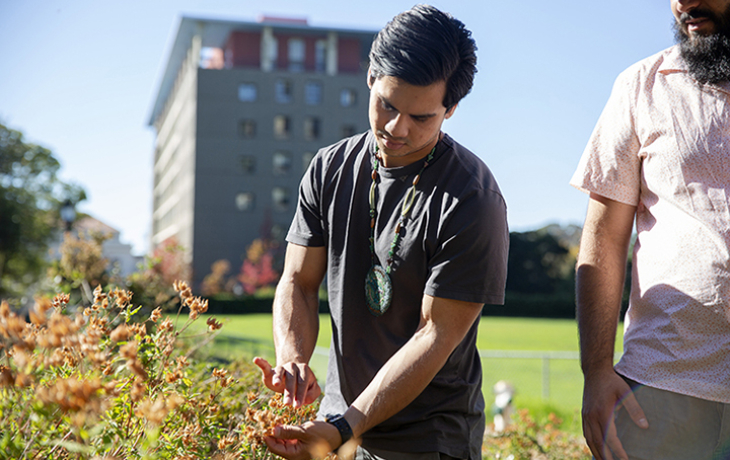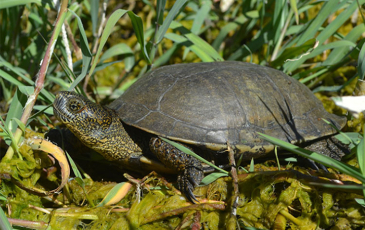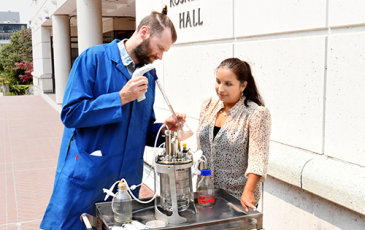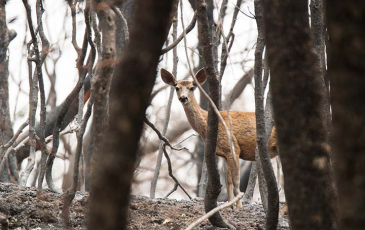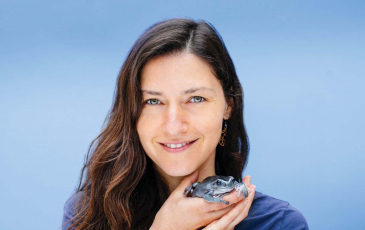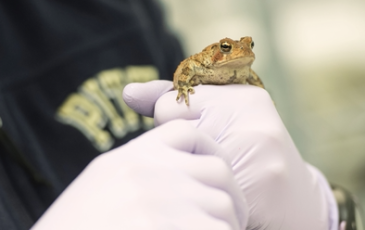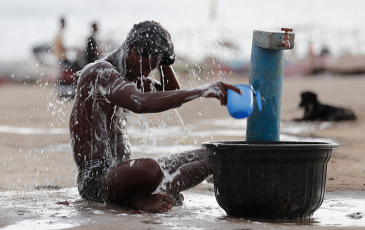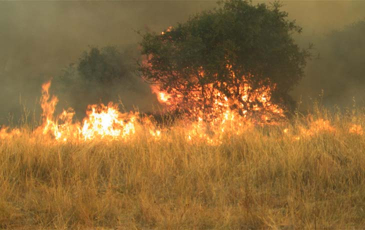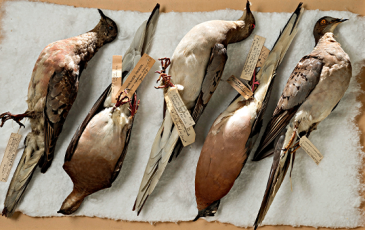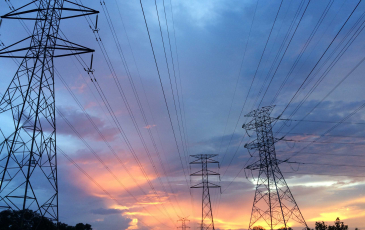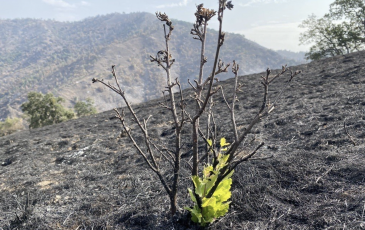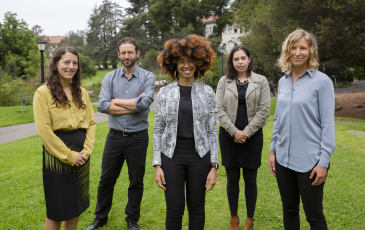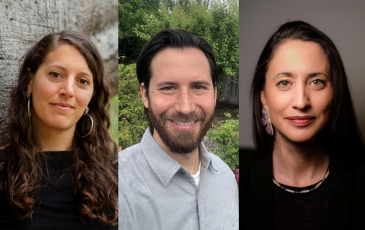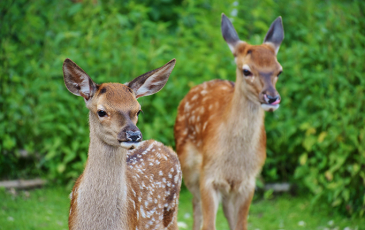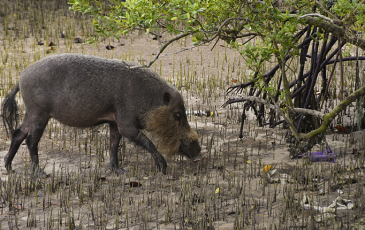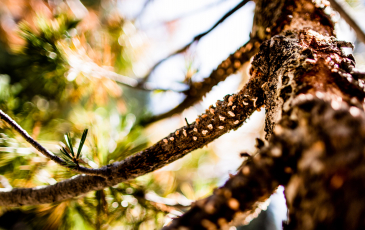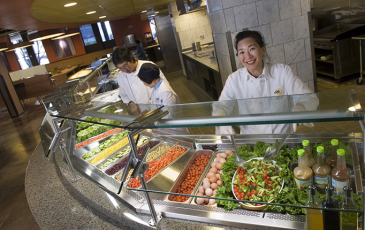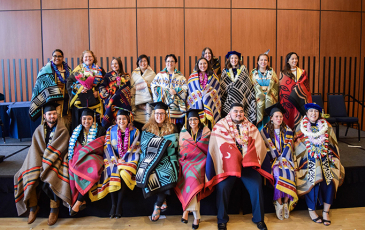Sigona, a member of the Amah Mutsun Tribal Band and a third-year ESPM Ph.D. student, focuses his research on Indigenous natural resource management, specifically with the Amah Mutsun—a landless and non-federally recognized tribe.
A wellness check for Tilden Park’s turtles
Former ESPM postdoctoral scholar Max Lambert is part of a team of wildlife experts studying local Western pond turtles, a species that is struggling to survive the combined threats of climate change, habitat loss and competition from red-eared slider turtles.
Implications of the Drought for California Agriculture
Assistant Cooperative Extension Specialist Ellen Bruno is co-editor of a special issue of the Agricultural and Resource Economics publication ARE Update focused on how the state can adapt to a drier future.
Engineering a hungry bacterium to protect public health
PMB professor Dr. Cecilia Martinez-Gomez and Dr. Nathan Good have used their research to engineer bacteria that removes gadolinium from medical waste
After California’s 3rd-largest wildfire, deer returned home while trees were ‘still smoldering’
Researchers in the Brashares lab were unexpectedly able to track the movements and feeding patterns of deer before, during and after the 2018 Mendocino Complex Fire.
Finding hope for biodiversity conservation
In a recent Berkeley Talks podcast, Professor Erica Bree Rosenblum discusses how the mountain yellow-legged frog is making a comeback after years of conservation efforts.
NSF funds $12.5 million for collaborative research on amphibian resilience to infectious disease
Professor Erica Bree Rosenblum is part of the RIBBITR project, a new, collaborative research institute focused on understanding how amphibians survive infections.
Air conditioning in a changing climate: a growing rich-poor divide
As the earth’s climate warms, residents of affluent nations will find some relief with air conditioning, but people in lower-income countries may have to pay vastly more for electricity or do without cooling, says a new study.
Wildfire beyond forests
Fire management in California is not seeing the forest for the trees, says a new study by ESPM researchers.
De-extinction Could Reverse Species Loss. But Should We Do It?
What would it mean to reintroduce woolly mammoths and passenger pigeons now?
A Utilitarian Approach to Global Climate Policy Improves Equity, Environment, and Well-being
Using the ethical theory of utilitarianism would lead to better outcomes for human development, equity, and the climate, says a paper out this week in Nature Climate Change.
Inequality built into the grid
Grid constraints could limit equitable adoption of solar energy in California.
Fire and the foothills: reducing wildfire threats while boosting biodiversity
Research at two UC Natural Reserves aims to reduce wildfire threats while boosting biodiversity.
New faculty to focus on climate change and environmental justice
New scholars across the university will bolster its research addressing energy equity and climate impacts on communities of color, marginalized, and underrepresented groups.
Spotlight on campus cluster hires
Rausser faculty, in both the Climate Equity and Environmental Justice and the Native American and Indigenous Peoples cluster hires, are featured in Berkeley News.
Patterns of income and urbanization linked to mammal biodiversity
Assistant professor of environmental science, policy, and management Christopher Schell co-authored a study published in the journal Global Change Biology.
Oil palm plantations reshape human hunting
Recent graduate alum Dave Kurz co-authored a study on shifting Indigenous practices now published in the journal People and Nature.
Drought and climate change shift tree disease in Sierra Nevada
In a study out today in Nature Communications, researchers at Berkeley and UC Davis explain the movement of infectious plant diseases.
New report details "first-of-its-kind" nutrition policy at Berkeley
Mary Lesser, a Nutritional Science & Toxicology researcher and lecturer, co-authored a report on the campus-wide program in the Journal of Nutrition Education and Behavior.
National Science Foundation awards $10 million to alliance of Native American institutions
With the funding, researchers at Berkeley and the University of Arizona aim to increase Indigenous participation in STEM education.


